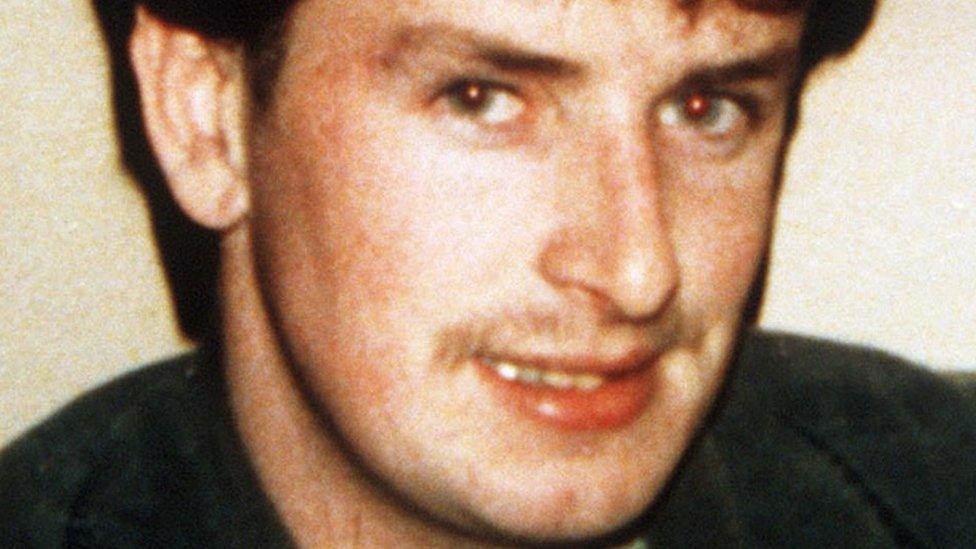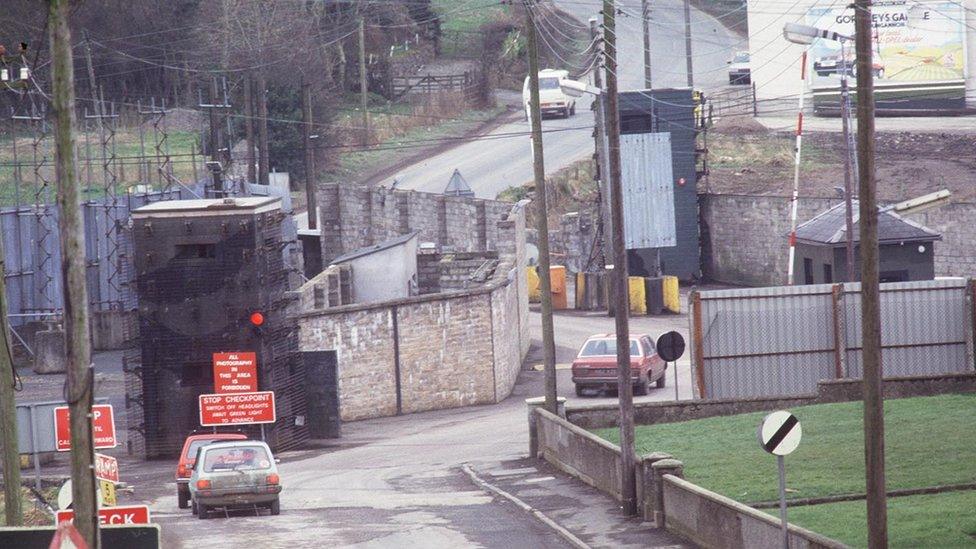Aidan McAnespie: Troubles case to continue after legal bid rejected
- Published

Aidan McAnespie, 23, was hit in the back by a bullet as he walked through a checkpoint in 1988
The trial of an Army veteran over a fatal Troubles shooting will continue after a judge rejected a legal application by the defence.
A lawyer for David Holden had argued to have the case thrown out.
Mr Holden, 52, denies the manslaughter of Aiden McAnespie, 23, near a border checkpoint in Aughnacloy, County Tyrone, in 1988.
Mr McAnespie was hit in the back by a bullet which ricocheted off the road as he walked to a Gaelic football match.
He posed no threat.

Mr McAnespie was walking through a border checkpoint near Aughnacloy, County Tyrone
Mr Holden was 18 at the time and serving in the Grenadier Guards.
He has claimed his hands were wet and his finger accidentally slipped on the trigger of a mounted machine gun he was manning inside a sangar.
Lawyers for Mr Holden filed applications for an abuse of process and that he had no case to answer.
In September 1988 after Mr Holden was initially charged with killing Mr McAnespie, staff from the Director of Public Prosecutions met with the senior RUC investigating detective and a forensic firearms expert and decided to withdraw the manslaughter charge.
In December 1988, Mr Holden was subsequently charged by the Army under Section 69 of the Army Act 1955 with the offence of "prejudice to good order and military discipline'' and was fined £370.86p by his Commanding Officer.
During two days of legal arguments last week, defence counsel Frank O'Donoghue QC told Mr Justice O'Hara: "My client, by the age of 19, believed that this matter was behind him and he could pursue his own life and left military life in 1990.''
The court heard that in 2008, the PSNI's Historical Enquiries Team (HET), reviewed the case of Mr McAnespie and produced a report for his family.
Seven years later, the Attorney General for Northern Ireland invited the director of the Public Prosecution Service (PPS) to review the case in light of the HET report.
In January 2018, the PPS informed Mr Holden that a decision had been taken to prosecute him for Mr McAnespie's manslaughter.
This decision was the subject of the legal bid.
Mr Justice O'Hara said on Monday: "There are some in our society who protest about former soldiers, such as this defendant, being tried for what they did many years ago," he said.
"There are others who complain that it has taken far too long for many people, not just soldiers, to be tried and held to account for deaths during our years of conflict and killings.
"Those are matters for our society and leaders to resolve. They do not form part of my consideration in this court.
"It is my conclusion that at this stage of the trial there is a case for the defendant to answer and the application by the defence is refused.''
The trial is due to resume on Tuesday.